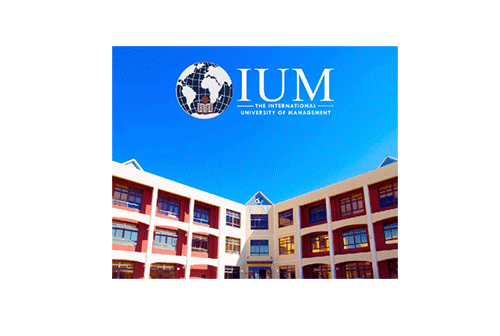Rudolf Gaiseb
The Independent Midwives Association of Namibia (IMANA) on Tuesday donated 18 MamaNatalie birthing simulators to the International University of Management (IUM).
The equipment is valued at N$1.6 million.
This was accompanied by learning materials from Helping Mothers Survive, sufficient for students to conduct multiple training sessions.
The initiative is part of a global campaign launched by the International Confederation of Midwives and Laerdal Global Health to enhance midwifery training and improve maternal health outcomes in Namibia.
IMANA president Sylvia Hamata highlighted the importance of supporting alternative, ethical methods for equipping midwives with the essential skills they require, while alleviating the burden on women in clinical settings.
“Simulation-based learning offers us an innovative, humane path forward – one that respects both educational standards and the rights of patients. Today’s handover is a milestone. It affirms our belief that quality education and respectful care are not mutually exclusive.
“It is our hope that institutions across the country will embrace simulation technology as a replacement for clinical exposure, but as a complementary tool that upholds the dignity of women and enhances student learning outcomes,” she said.
Hamata urged the nation to commit to fostering a healthcare culture that centres on dignity, consent and compassion, as well as to invest in tools and practices that protect women, uplift students and empower midwives to serve as custodians of respectful care.
IUM vice chancellor Osmund Mwandemele remarked that the donation will aid in closing the gaps in healthcare.
“These state-of-the-art simulators will revolutionise our training programmes, allowing students to sharpen their clinical skills in a risk-free environment, thereby ensuring safe outcomes for the mothers and newborns. In a nation where maternal health remains a priority, this donation empowers us to align with Sustainable Development Goal 3 to ensure healthy lives and promote well-being for all,” he stated.
Prof. Stephanie van der Walt, the head of the nursing and midwifery department, noted that approximately 218 third- and fourth-year midwifery students will now gain access to hands-on training with these state-of-the-art simulators.
“This will not only strengthen their clinical skills but also build their confidence in managing birth complications, particularly post-partum haemorrhage, a critical aspect of maternal care. The impact of this donation will be felt for years to come. We are truly excited about the future of midwifery education at IUM,” she highlighted.
This year, the university enrolled 450 undergraduate students in the nursing and midwifery programme.
The university has closed the door on many students who have tried to enrol for the nursing and midwifery course. This is due to the curriculum, which restricts the number of students that can be enrolled in the training institution due to limited training resources.
Each year, IUM receives approximately 1 000 to 2 000 applications for the nursing programme.
“In the past, we took 100 students. But last year, we decided to listen to the demands of the population out there. The number was increased to 200. It is a pity because the demand is there, there’s an outcry for the training, but we need to work in the regulatory framework,” Van der Walt said.
Despite this, the university boasts a high student enrolment for health-related careers in Namibia, including Germany.
–rrgaiseb@gmail.com


